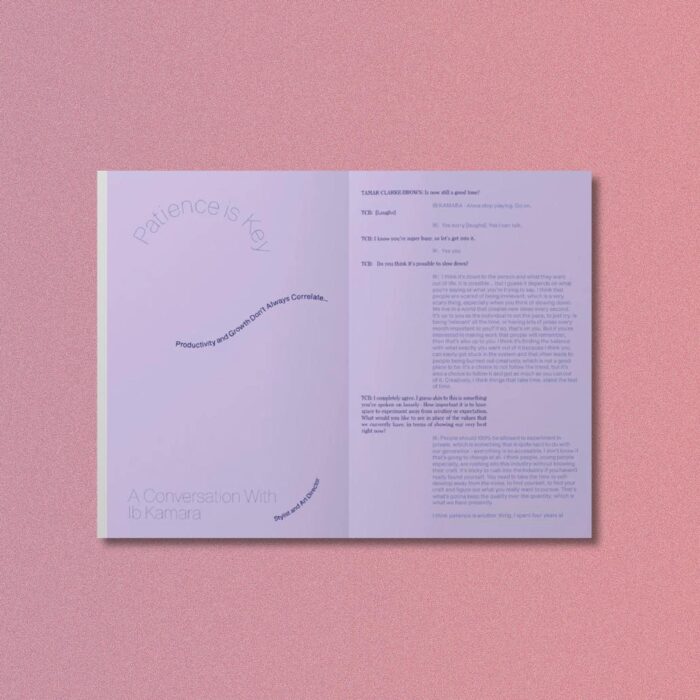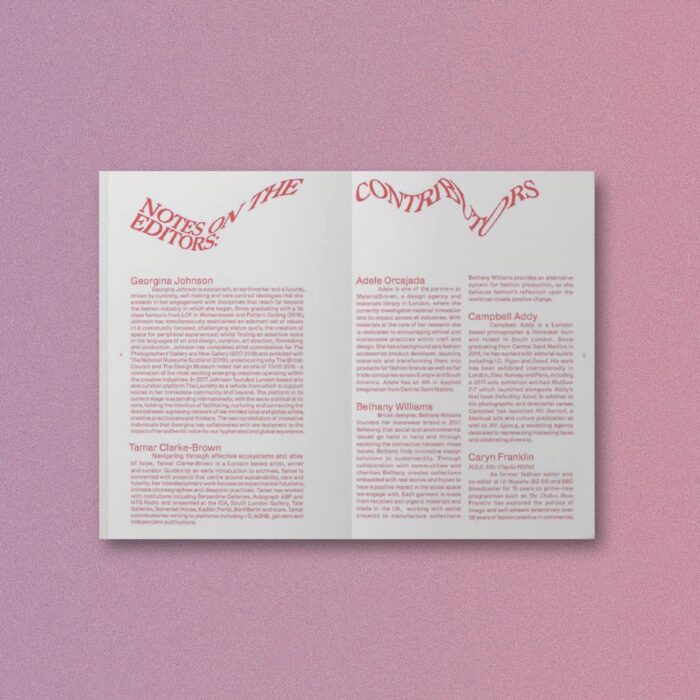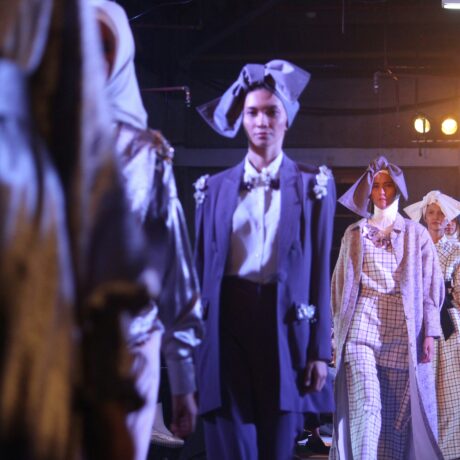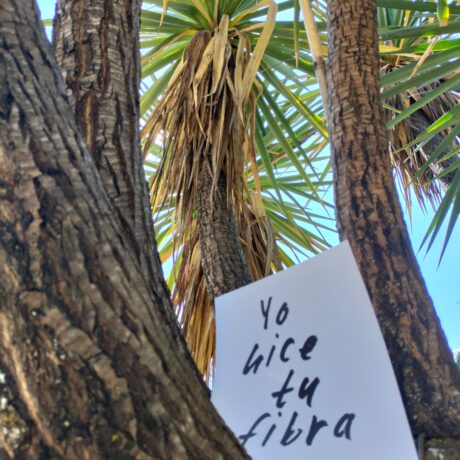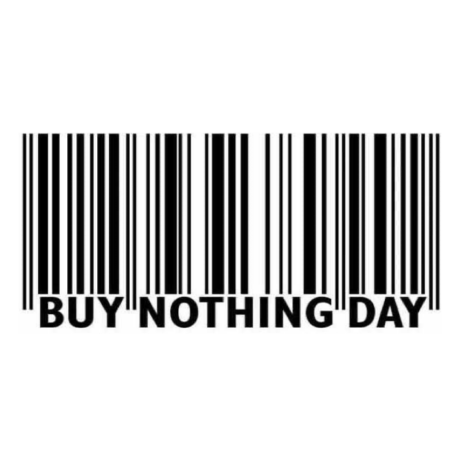The Revolution begins with Care
A movement towards ‘Slowness’ is gaining momentum in response to the global crisis. But for many of us this shift took place a while ago. Let us first frame ‘Slowness’. To many this is automatic visual language. You picture yourself walking at a snail’s pace, but what slowness isn’t is solely a matter of bodily movement. I believe it begins with a turning off of the proverbial switch, starting with asking yourself the hard questions; starting with deciding to do the work of unlearning the model of capitalism that has crippled communities and individuals for an age, and most importantly choosing to centre care – for people and for the planet. It isn’t easy. Commitment to any shift requires more compassion with oneself, it also requires some sort of severing to take place and that in itself can be a slow process. But at a moment when we are seeing conversations that have been taking place behind the curtain, move into the spotlight, we should ask what can we learn from the folks that have been raising the alarm all along? And from those that made this commitment a long time ago?
We learn that history has a knack of repeating itself. We learn that whilst collective and societal awareness is being peaked, we – as a society – align, oftentimes with what we know; so a recurrence of many of the practises that we know have damaged those vital forces – people and the planet, is likely to slip back into action. If we soley make choices through the lens of business then we won’t be able to see with fresh eyes. Nothing is unlimited, not human beings, not natural resources, not labour and not health or social care. We learn, in times of uncertainty we need a guide.
The Slow Grind: Finding Our Way Back to Creative Balance, is that blueprint. An anthology addressing radical change, sustainability, and how hyper-acceleration affects both the planet and people in a social, physical and psychological sense. The Slow Grind is a reckoning with the systems, practises and pace that we have adopted for an era. Unveiling the inequalities in our societal frameworks, and going further to unpack how the mechanisation of bodies deeply impacts our mental wellbeing. This resource is required reading for anyone that wants to futuremap or safeguard our fragile social and biodiverse ecosystems. Gathering over 20 contributors, including; writers, commentators, fashion physiologists, biotechnologist’s and activists – some of the most formidable voices from across the fashion and creative industries, to throw some light on the interconnectedness of said issues, to aid the development of holistic actions towards the planning of the future industries we are envisioning now.
Artist and Associate Director at Auto-Italia, Deborah Joyce Holman is one of those contributors. In writing the introduction for this collection, she illustrates the necessity for a fuller layered conversation around sustainability, futurism and regeneration.
What is The Slow Grind?
By Deborah Joyce Holman
In compiling The Slow Grind, artist, curator and director Georgina Johnson highlights creatives, educators and academics who add to global conversations around accountability and responsibility. Simultaneously, they recognise that the majority of issues are interconnected and essentially circle back to the failings of a neoliberal economy; where community values are pushed aside for individual success, measured in visibility and money. Largely this perspective is missing from conversations around sustainability. We tend to view issues as singular pillars, forgetting that each of our lives is layered and so are our modes of living.
The Slow Grind presents how art, creativity, curiosity, experience and importantly empathy, are central to the opening up of radical imaginings around safeguarding our future. It illustrates that change cannot myopically focus on what affects us directly, but should challenge us to consider the whole. Only in this way can we engineer change that has a multicultural centre and is holistic and sustainable in the creative industries and beyond. A reshaping that would integrate and emphasise new ecological and social imperatives and act as a yardstick for other industries by engaging with interdependency as a way forward.
The contributors to this book deal with issues including but not limited to; mental health, responsible consumption and educational reform. They explore what disruption and resistance mean in our time. The work of these practitioners is innovative and reparative when understanding how radical their approaches are in contrast to current norms.
Care & accountability
Notions of care and solidarity are fundamental in building towards greater social justice and sustainability. As our economic, environmental and sociopolitical contexts are continually evolving, these notions require constant updating too.
In her text, Maisie Skidmore takes a closer look at the ‘Hierarchy of Needs’, developed by the American psychologist Abraham Maslow (1908 – 1970). Maisie, a freelance writer, editor and editorial consultant, examines in particular how significations of the top level of the pyramid – self-actualisation – have changed over time.
Maisie’s study on the shift of self-actualisation towards an overlap with professional goals and its influences on our self-esteem strongly echoes a compelling conversation with photographer, founder of Niijournal and mental health advocate Campbell Addy. Sharing his struggle to respect mental health in a demanding work environment, Addy leads us through the stages of his realisation that mental health needs to be an essential consideration in determining our pace of work. He illustrates the crucial need for a return to a human-centred approach to work and creativity.
The radical act of insisting on a humane schedule (with sufficient time to properly labour each project), contributes to shifting the conversation and de-normalising our current practices. The pace we have adopted chips away at our wellbeing and affects more than just ourselves. In having these conversations centred around care, we practice empathy, something from which everyone benefits.
Our next step should be asking what care looks like in regards to our collaborators on the other side of the world, such as those working in factories. How can we facilitate dialogue and implement the changes needed to support their wellbeing as well as ours?
Fashion psychologist Pak Chiu responds to this, with a text that calls for the inclusion of the voices of factory workers. We cannot continue to approach environmental sustainability with methods informed by colonialism, erasing the voices of those most affected. Everyone in the production chain, especially those who are currently working in inhumane conditions, need to have a say in what change looks like.
What does radical mean in 2020?
To even begin thinking about what it means to radically strive towards change, it is fundamental that every one of us understands our own complicity in unsustainable systems. We exist at intersections, meaning that according to context, we each simultaneously inhabit the roles of oppressor and oppressed in varying degrees. As globalisation has scattered production processes across the world, this understanding becomes even more relevant. From here, incredible – and radical propositions for change, such as those featured in this book can grow.
Pre-Order your copy of The Slow Grind: Finding Our Way Back to Creative Balance here.
Edited by Georgina Johnson and Independently published by curatorial platform The Laundry arts.
Full Contributor List:
Bethany Williams
Caryn Franklin MBE
Campbell Addy
Francesca Gavin
Giulia Tomasello
Ib Kamara
Juno Calypso
Kimberly Jenkins
Material Driven
Maisie Skidmore
Orsola de Castro
Pak Chiu
Renuka Ramanujam
Seetal Solanki
Sara Arnold
Tamsin Blanchard
Wilson Oryema
Foreword by Sumitra Upham (Senior Curator, Design Museum)
Introduction by Deborah Joyce Holman (Auto Italia Associate Director, artist & curator)
Editor: Georgina Johnson
Assistant Editor: Tamar Clarke-Brown
Design: Josh Woolford




